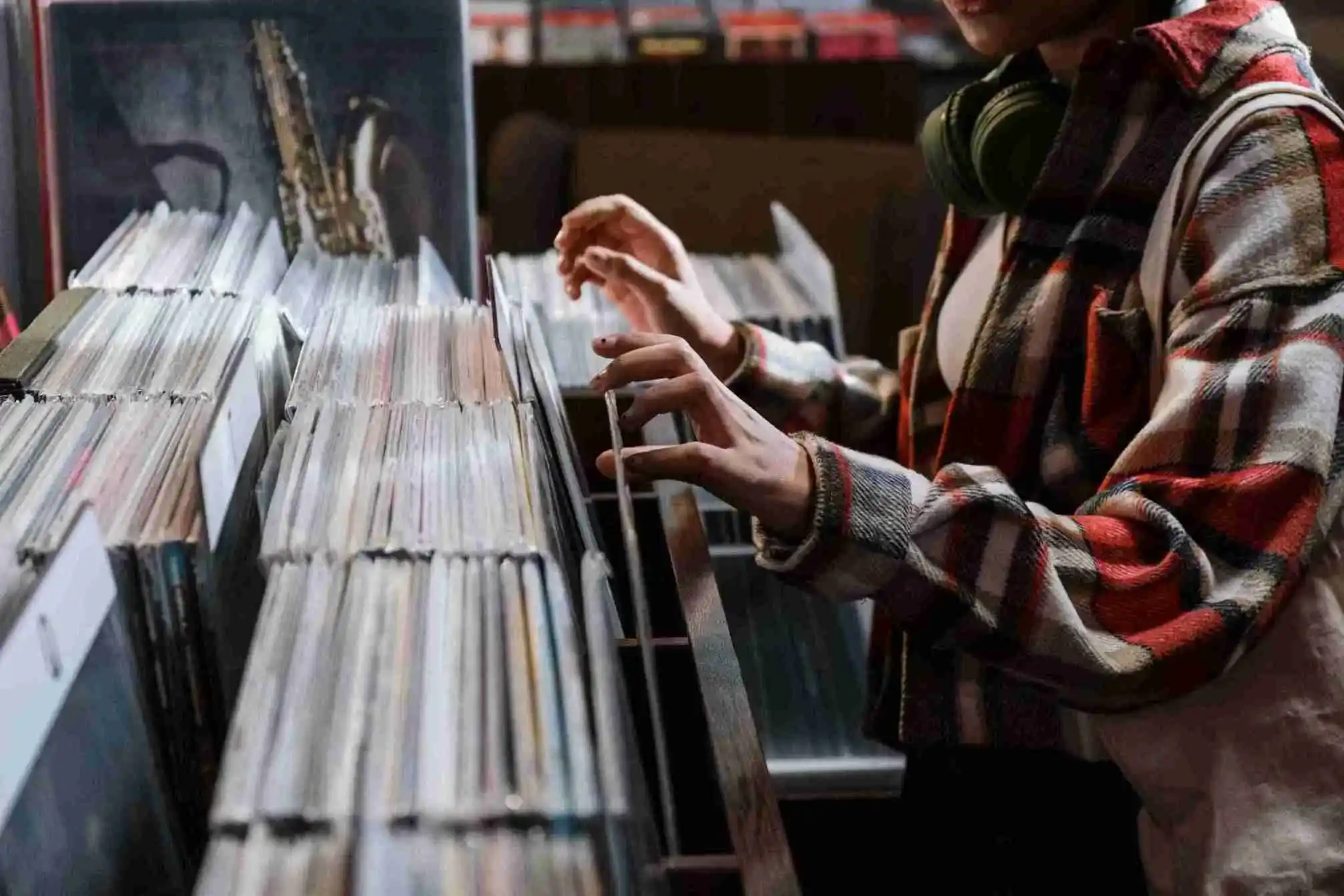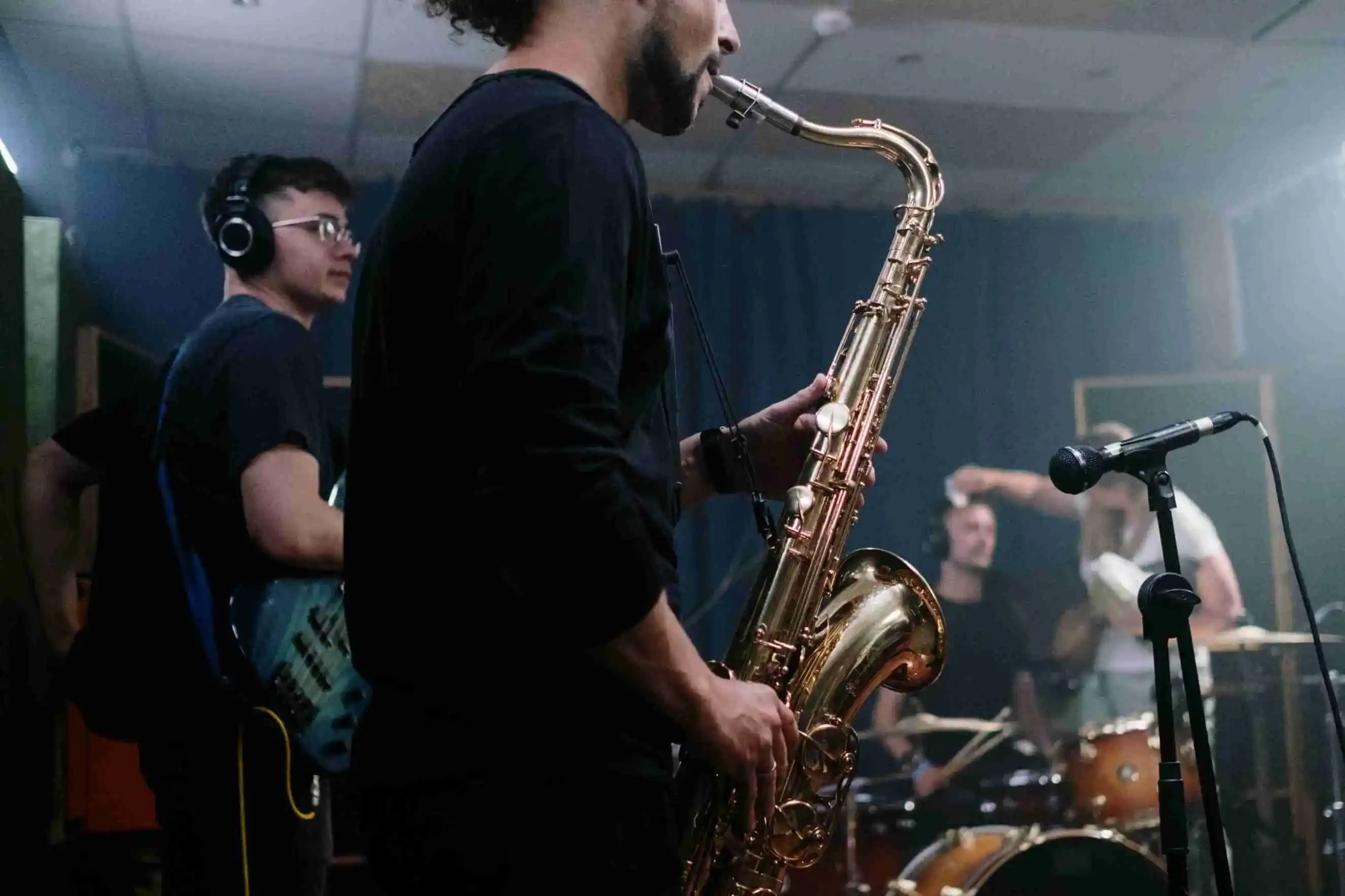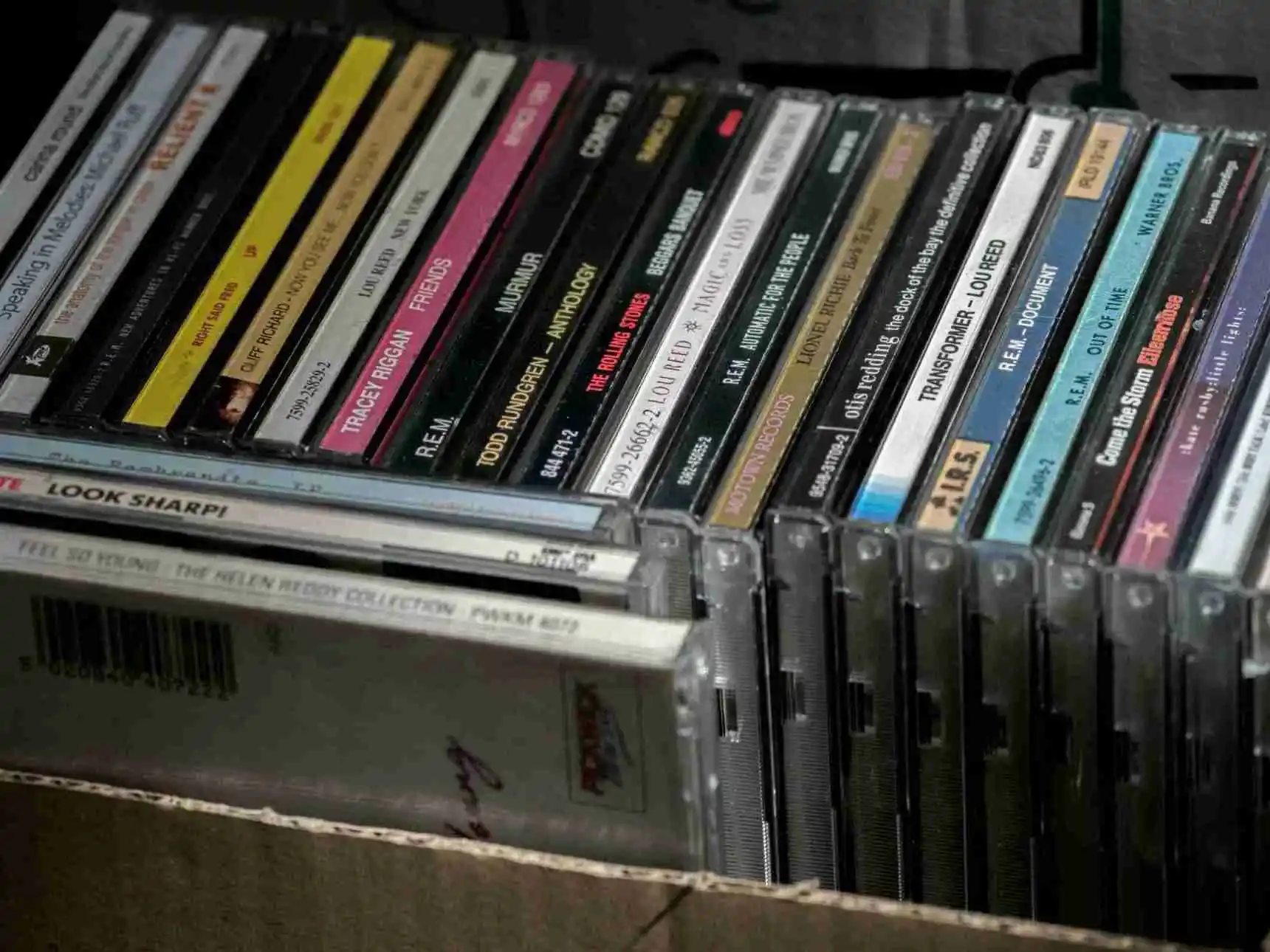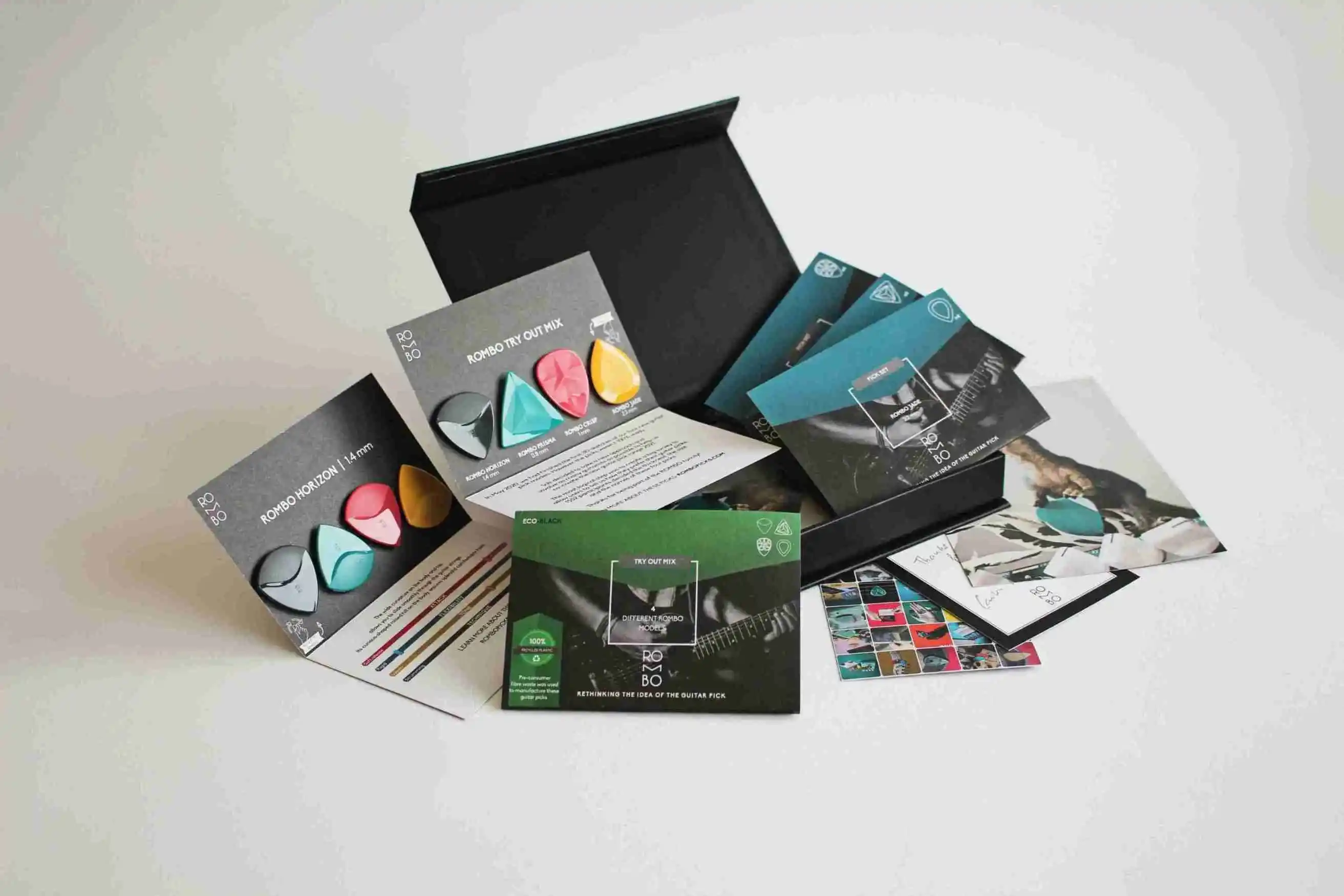Your Music Career in 2025: How to Make Money as a Musician
Familiar to many is the narrative of the struggling musician, fighting to maintain financial stability. Monetizing your music might seem challenging, but rest assured, it's achievable. By expanding your skillset and exploring various revenue streams in the music industry, you'll discover a multitude of opportunities for generating income from your talent and expertise.
What are the primary income sources for musicians in 2025, you ask? Well, we have compiled a list of ten profitable channels that form the backbone of any successful artist's income.
Want to learn about how to promote your music? Check out this article.
- Revenue from Music Streaming Services
- Profit from Publishing and Live Performance Royalties
- Making Money from Merchandising
- Earning from Concerts & Tours
- Income from Physical Music Sales
- Earnings from Sync Licensing
- Revenue from Brand Partnerships
- Crowdfunding as a Revenue Source
- Profits from Music Libraries
- Music Lessons for Income

Revenue from Music Streaming Services
As we transition deeper into the digital age, revenue from music streaming has grown exponentially. Platforms such as Spotify, Apple Music, Pandora, and even your YouTube Channel offer subscription-based services that distribute revenue back to artists based on the number of plays their tracks receive. This model has allowed for a broader reach of music across the globe, giving artists a constant stream of income, albeit lesser per stream, making the release volume of your own releases a critical factor.
Streaming also intersects heavily with the rise of digital sales, online platforms, and the ability for artists to reach global listeners without leaving home. Because listeners stream music from every corner of the world, artists can release and compose original music, or collaborate with other artists to create singles that earn revenue around the clock. For many musicians, streaming is a foundation for making money online, especially when paired with physical recordings, digital downloads, and synced video content. This shift has empowered many independent artists who no longer rely solely on live venues or label support. When combined with smart audience engagement on social media platforms, streaming can help artists open sustainable paths to more money, extra money, and even long-term sustainable career growth.
How to Leverage Music Streaming for Your Music Career
First, you'll need to record and produce your music to a professional standard, including potentially creating music videos for your work. Next, partner with a music distribution service like Unchained Music that can get your music on various streaming platforms like Spotify, Apple Music, and Pandora. Ensure that you promote your music to attract listeners and increase streams. Remember to register your works with a performing rights organization to collect royalties.
You’ll also want to diversify your digital presence by pairing streaming releases with digital downloads, which allow fans to directly support your work. Some artists sell online using bundled offers that include album art, lyric sheets, or commentary tracks for exclusive content. Others create playlists featuring other musicians and other bands, helping build goodwill and expand their visibility within the community. Don’t forget that as you record tracks, you can also repurpose them for other media such as podcasts, indie films, and promotional videos. This not only increases exposure but can generate digital royalties and additional music licensing opportunities, another critical piece of building more money in your career.

Profit from Publishing and Live Performance Royalties
Music publishing and live performance royalties represents another significant income source for musicians. This entails the commercial exploitation of songs through the collection of royalties for various uses of copyrighted music, like usage in radio, television, movies, or when your music is played in public. While a record label will generally work with a publisher, who then in turn collects and distributes these royalties to the songwriter, often after taking a percentage cut, while the performing rights organization ends up collecting live performance royalties from live music. It's a great way to make money without having to do a lot more work.
Publishing becomes even more powerful when you explore opportunities beyond traditional placements. For example, corporations, advertising agencies, and radio stations frequently license tracks for campaigns, events, or in-store playlists. You can also offer to transcribe music for performers who want to reinterpret your songs, or even collaborate with other musicians to produce alternative versions that qualify for separate royalty streams.
Many artists also create instrumental versions of their original music to pitch specifically for music therapy, educational projects, or wellness programs. As you release new music, remember that each track generates a fresh revenue opportunity, particularly when tied to digital sales, cd sales, or high-value music licensing placements. Properly registering each piece ensures long-term earnings and helps you build a truly sustainable career as your catalog grows.
How to Claim Publishing Royalties
Begin by writing or co-writing songs. Then, establish a contract with a music publishing company that will manage, promote, and license your music. To optimize income, consider joining performance rights organizations like ASCAP or BMI, which track and collect royalties for your music. Remember that anytime you sell music online or earn money from streaming, there are both mechanical royalties and public performance royalties that you could potentially collect.

Making Money from Merchandising
Merchandising has grown beyond shirts and hats, today’s artist can build a complete brand identity through branded merchandise, physical merch, and digital add-ons. Some musicians design items inspired by their popular songs, while others collaborate with local businesses to create limited-run merchandise tied to community events. For many creators, merch represents one of the strongest ways to make money because fans love owning a tangible piece of the artist’s world. You can even bundle merch with digital downloads, offer exclusive access to signed items, or run pre-order campaigns that help with raising funds for tours and recordings. Whether at music venues, live gigs, or on your website, sell merchandise in formats that delight fans and help you earn decent money consistently.
How to Make Money by Selling to Your Music Fans
Start by identifying what products would resonate most with your fanbase. This could range from t-shirts to posters, vinyl records, or unique, limited-edition items. Next, find a reliable supplier or manufacturer, and set up an online store. Promote your merchandise at concerts, through social media, and your official website.
You can expand your merchandise strategy by adding digital products such as sheet music, behind-the-scenes videos, or even a tutorial series on playing instruments. Many artists also sell merch tied to specific releases, packaging album art with lyric books or offering special bundles for superfans. If you tour frequently, consider selling items at licensed venues, music festival appearances, and community events hosted by local businesses.
Some musicians even incorporate live streaming sessions to promote merch drops and integrate a virtual tip jar to generate extra money during the broadcast. Platforms like YouTube or youtube live, Instagram, and facebook live make it easy to interact with fans in real time. The more you incorporate storytelling and authenticity into your presentations, the more effectively you can make money with a supportive fanbase.
Earning from Concerts & Tours
Live performances remain one of the strongest ways to make money, especially when paired with smart digital strategies. Whether performing at music venues, corporate events, private parties, or grassroots community shows, your presence creates demand for new experiences. Many artists also book festival slots, and a single music festival appearance can lead to networking with other artists and potential collaborations.
Even small live gigs can introduce your original music to listeners who later support you via merchandise, digital downloads, or ongoing fan subscriptions. Increasingly, artists blend in-person shows with live streaming, allowing remote audiences to tip via a virtual tip jar and subscribe to exclusive content. These hybrid performances allow musicians to earn more money even between tour dates.
For many artists, live performances such as concerts and tours generate the largest portion of their income. Tickets to live performances can command high prices, especially for well-established artists, but even a living room concert featuring live music can be profitable in the right circumstances. Moreover, tours also provide an opportunity for increased merchandising sales. Even with the advent of digital music, the in-person concert experience is irreplaceable, making it a lucrative revenue stream.

How to Drive Music Fans to Your Gigs
To make money from concerts and tours, you first need to create a solid setlist of music and rehearse it to perfection. Then, either independently or with the help of a booking agent, schedule performances at venues that suit your fanbase. Promote your concerts or tours through social media, your website, and local media by creating content leading up to the performances and throughout your tour. Behind the scenes content works well in the music industry, as does clips of your shows, and any other way you can honestly connect with your fans on a personal level.
Income from Physical Music Sales
Even in a world dominated by digital music streaming, there's still a significant market for physical music sales. Vinyl records, for example, have seen a resurgence in popularity in recent years. Collectors and audiophiles alike continue to value physical music mediums for their tactile nature and audio quality, allowing artists to tap into this niche market for additional income.
Selling CDs or Vinyls to Earn Money
Start by creating high-quality, attractive physical copies of your music, such as CDs or vinyl records. Then, make these available for sale at your concerts, through your website, and possibly through local or independent music stores. Market these physical products as unique keepsakes or collector's items to encourage sales. If you're able to sell cds to earn money, and set them up in an online store so you don't have to manage inventory, even better!
Earnings from Sync Licensing
Sync licensing is a process where a copyright holder grants a license to synchronize music with some kind of visual media output like films, TV shows, advertisements, video games, etc. When an artist's song is synced, they receive a fee, and potentially royalties based on the viewership of the media their music accompanies. This can be a significant revenue source, particularly when music is placed in high-profile media.

Music Production Skills are Essential
Firstly, write and produce high-quality, licensable music. Then, submit your music to sync licensing agencies who can pitch your music for usage in TV shows, films, advertisements, or video games. Be sure to register your works with a performing rights organization to ensure you receive all owed royalties.
Revenue from Brand Partnerships
Musicians can also earn revenue through brand partnerships. These collaborations can range from the artist promoting a product through their music video, social media or even developing a product line. Brands often pay handsomely for these partnerships as they can leverage the artist's image and fanbase for increased visibility and sales.
Authentic and Behind the Scenes Content Works Well
Develop a strong brand and audience as an artist. Then, find brands whose products or services align with your image and values, and propose a partnership. This could be as simple as sponsored social media posts, or more complex like co-branded products or tour sponsorships. Remember that the more you can legitimately connect with your audience on a personal level, rather than trying to sell them something, the better received a brand partnership will be.
Crowdfunding as a Revenue Source
Crowdfunding platforms like Kickstarter or Patreon provide a direct avenue for fans to fund an artist's work. This could be for specific projects, such as recording a new album or going on tour, or on an ongoing basis to support the artist's overall career. With this model, artists can generate funds upfront, reducing financial risk and fostering a close relationship with their fan base.

Music Videos and New Albums are a Good Target
Establish a solid fanbase and decide on a project you'd like them to fund (e.g., a new album, a music video, music production for a new album, live tour, etc). Then, create a compelling campaign on a crowdfunding platform like Kickstarter or Patreon. Be sure to offer enticing rewards to donors to incentivize their contribution.
Profits from Music Libraries
Music libraries, or production music libraries, are essentially catalogues of tracks that filmmakers, advertisers, and game developers can license for their projects. For a musician, contributing to such libraries can yield passive income over time. Each time a track is licensed, the artist receives a portion of the fees.
Composing Music for Music Companies
Write and produce music suitable for background or theme music. Then, submit these to music libraries or platforms, who sell your music to customers needing music for their projects, such as YouTube videos, podcasts, or indie films.
Music Lessons for Income
Apart from creating and performing music, many musicians supplement their music career by teaching. This could take the form of private lessons, online courses, or workshops. The digital age has made it easier for musicians to reach students globally, and while you may not be performing your own music, you'll be adding a stable revenue stream while also allowing sharing your knowledge and passion for music with your students.
How to Start Online Music Lessons
Master your instrument or music theory well enough to instruct others in the art of performing, or how to read sheet music. Then, decide on a teaching format (e.g., one-on-one lessons, group classes, online tutorials), and advertise your services. You can offer lessons in-person or online through platforms like TakeLessons or even on your YouTube channel. Don't think that teaching is beneath you! More musicians than you know in the music industry teach as supplemental income.
Go and Make Money, Musician!
Overall, here are numerous avenues for generating income in the music industry, each with its own unique steps and processes. Whether you're monetizing your music through streaming platforms, creating a steady stream of income through music publishing, or diversifying your revenue streams through merchandise sales, live performances, or teaching, it's clear that a successful career in music involves much more than just creating great songs. It's about strategizing, marketing, and often diversifying to ensure a steady income. As an artist, understanding these different income streams and taking advantage of them can be instrumental in turning your passion for music into a sustainable and profitable career.
FAQ
What are the main ways to make money as a musician in 2025?
There are many ways for musicians to earn money in 2025. Key income streams include streaming royalties from platforms like Spotify and Apple Music, merch sales, live shows, and selling digital downloads. You can also generate income through music licensing for TV, films, and commercials, publishing royalties, and offering music lessons. Diversifying your revenue streams is crucial to building a sustainable career as a working musician.
How can I leverage music streaming platforms to earn money?
To start monetizing your music through streaming, make sure to distribute your tracks on music platforms like Spotify, Apple Music, and YouTube. Partner with a music distribution service like Unchained Music to get your music on these platforms. Focus on audience engagement and regularly release music to maximize streaming royalties. Additionally, consider pairing your releases with digital downloads and promoting them directly to your fans to create a consistent source of income.
How can I make money from selling merchandise?
Selling merch is a great way to make money, especially if you have a loyal fanbase. Start by offering physical items like t-shirts, posters, and vinyl, which can be sold at live shows or on your website. Consider offering exclusive merch for special releases or packaging it with digital downloads. Many musicians also sell merch during gigs, and online, by creating limited edition items or collaborations with local businesses. This can provide extra income and help build your brand.
What are the best ways to promote my music and grow my career?
To promote your music effectively, focus on building an online presence and engaging with your fans on platforms like YouTube, Instagram, and TikTok. Consistent posting, networking, and creating behind-the-scenes content can help grow your audience. Additionally, partnering with music distributors and utilizing music marketing strategies like playlists, targeted ads, and fan engagement can drive more streams and ticket sales. These strategies can help you build a sustainable career and increase your success in the music business.
How can I start teaching music lessons for extra income?
If you're a skilled musician, teaching can be a rewarding way to make money. You can offer private music lessons either in-person or online through platforms like TakeLessons or your own website. Music lessons provide a stable revenue stream while sharing your passion and knowledge with others. You can teach instrumental skills, songwriting, or music theory, and even create online courses for a broader audience. Offering lessons also helps you build connections with other musicians and can boost your credibility in the music industry.